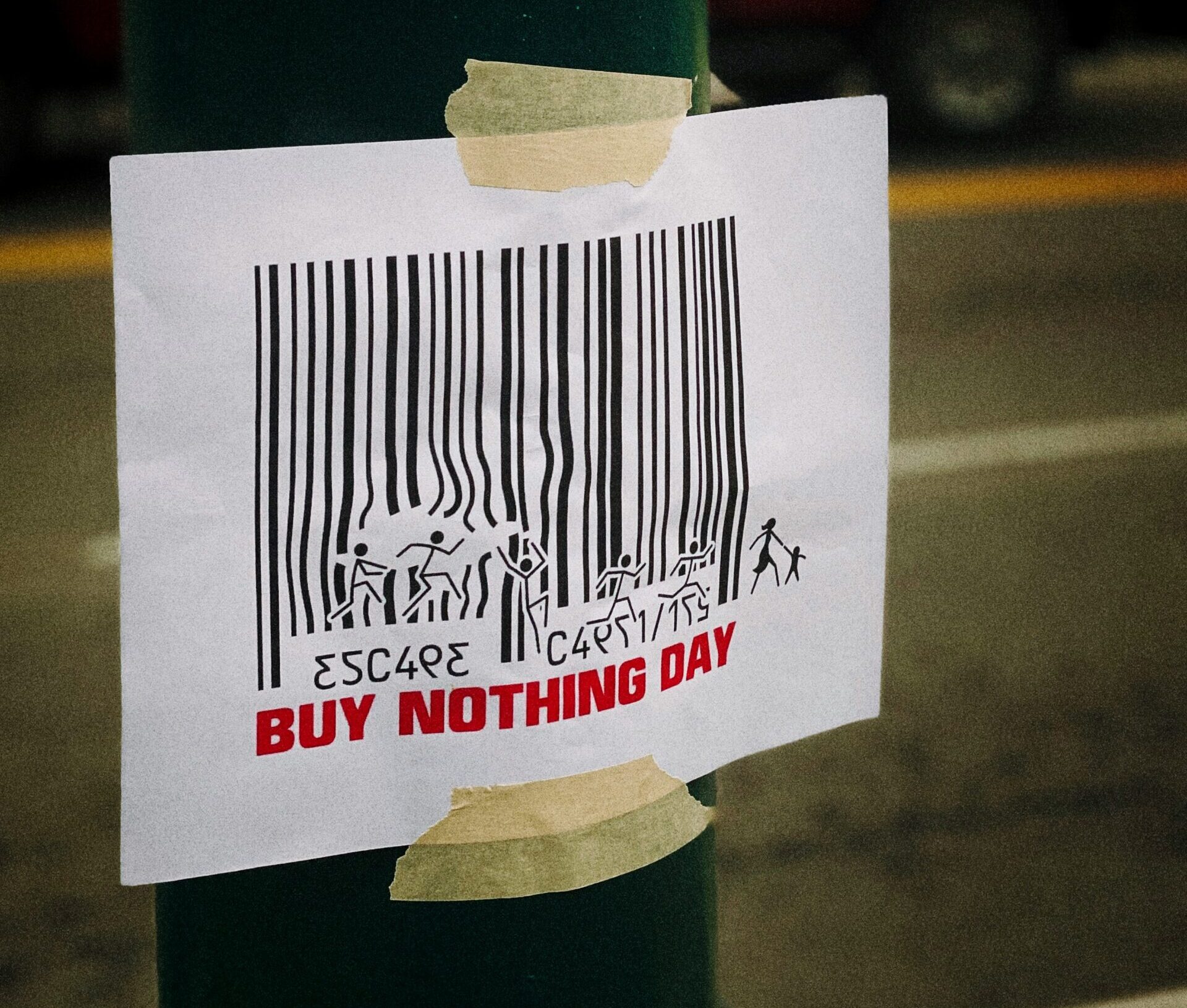In communities across Boulder County, a quiet revolution is taking shape — one rooted in democratic approaches to economic life that challenge the assumptions of late-stage capitalism. From cooperative housing initiatives to community-supported agriculture and local credit unions, residents are coming together to support systems that prioritize people over profit.
These efforts aren’t just experiments on the fringes: They’re practical, resilient responses to the growing economic instability.
As the federal government divests from community infrastructure and social safety nets, increasing costs and destabilized supply chains will make basic needs increasingly inaccessible.
In Boulder County, people are reimagining how we buy homes, access food and manage our money — all in the name of supporting resilient communities prepared for an uncertain future.
Housing
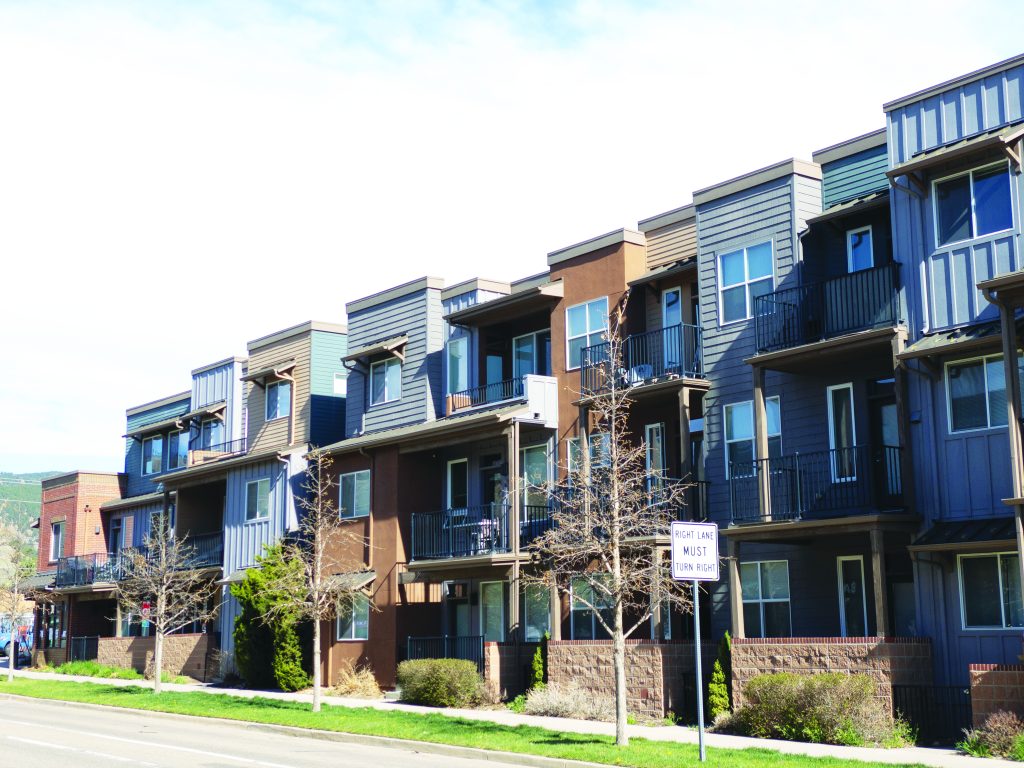
Boulder has a serious affordable housing crisis, with rising property prices and limited funding for affordable housing initiatives. Local groups are addressing the issue with unique approaches that provide affordable and community-oriented living options.
Who’s doing it locally?
Boulder Housing Coalition (BHC) is an organization that creates permanently affordable cooperative housing in Boulder and Denver. BHC owns four cooperative houses in Boulder where groups of people democratically own or manage where they live.
BHC’s funding comes primarily from grants and loans from the City of Boulder, which are used to purchase the properties. Resident rents are then used to cover ongoing expenses and mortgage payments. To live in a BHC house, residents must qualify based on income and assets.
“Rent starts at $585, so people can experiment with this style of living without making the same kind of investment if you’re trying to buy a house,” said Lily Kapiloff, director of development. “Renters get more autonomy, more say over what’s happening, as if they owned the house.”
Sarah Wells, a real estate agent and co-buying specialist at LiveWork, helps people and groups cooperatively buy property in the Denver metro area. Co-buying allows groups of 2-8 people who already know each other to purchase a property together, often for increased affordability or to build community.
“In 1971, the average first-time home buyer age was 24, and now it’s 37,” Wells said. “What we’re really trying to do is to make it possible for people to do it sooner so that they have a longer runway for building wealth, and they can get on the ladder of equity building sooner in life.”
How you can get involved
If you’re looking to rent, Boulder Housing Coalition has open spots, or you can donate to the organization. If you’re thinking about buying a house, but don’t have the resources to buy on your own, consider co-buying and contact Wells for guidance.
Banking

The collapse of the financial system in 2008 changed the landscape of banking in the United States. Before the crisis, more than 100 new banks opened each year. Today, starting a new bank has become more difficult, with just six new banks opening nationwide in 2024, according to NPR’s Planet Money. This shift has made it harder for small, local banks to compete against the dominance of massive institutions like JP Morgan Chase and Bank of America, which collectively control trillions in assets.
Credit unions are an alternative to traditional, for-profit banks. Unlike big banks that prioritize shareholder returns, credit unions are not-for-profit, member-owned cooperatives that reinvest their profits back into the community. They often have lower fees, more flexible loan terms and a range of financial education services.

Who’s doing it locally?
Elevations Credit Union is one of the most well-recognized credit unions in Boulder County. The institution has over $3 billion in assets and 170,000 members. “We don’t have shareholders, we have members, and we are owned by those members, not shareholders,” said Kathleen Hoxworth, vice president of internal communications. “That helps us make members our first priority, and it makes the members the heart of all of our decisions.”
Other credit unions in Boulder County include Canvas Credit Union and Premier Members Credit Union. Alpine Bank and High Plains Bank, while not credit unions, are Colorado-based and employee-owned.
How you can get involved
Consider opening an account with a local credit union. Moving money to institutions like Elevations, Canvas or Premier Members Credit Union supports the community-centered financial system and ensures that there are alternatives to big corporate financial institutions.
Investing in the land
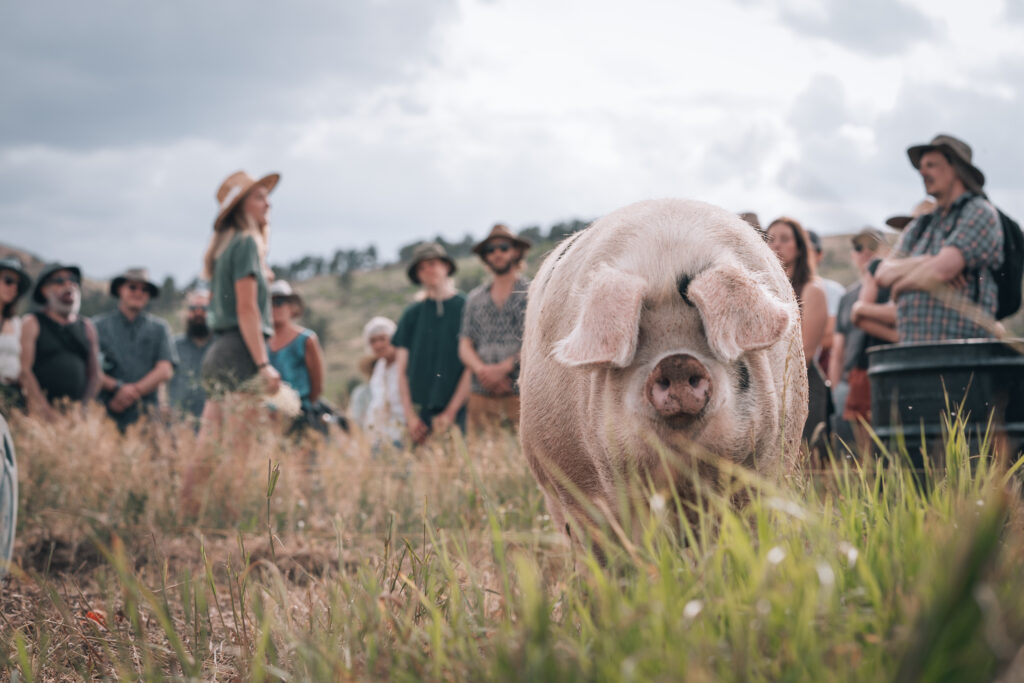
Investing is a powerful tool for building community wealth and supporting local businesses. Unfortunately, many traditional investment opportunities are only available to accredited investors — those who meet specific income or net worth requirements. These requirements make it challenging for everyday people to support initiatives that align with their values and directly benefit their communities.
Fortunately, alternative investing approaches are emerging to democratize the process, allowing more people to invest in businesses they believe in. Here are a few examples of how this is happening in Boulder County.
Who’s doing it locally?
“A big thing that kept coming up for us in the agriculture world and the world in general is that people have a pretty damaged relationship to money,” shared Azuraye Wycoff, executive director and operator at Yellow Barn Farm.
The team at the Longmont farm recently launched a StalkMarket program, which allows customers to buy a Soil Share to support regenerative land stewardship. In return, members receive vegetable, meat and egg shares, as well as benefits like access to co-working space, community meals, free classes and events, and participation in The Picky Pig compost and food waste drop-off program.
“You’re truly investing in the soil, and you have a share that gives you dividends,” Wycoff said. “And those dividends are things like the byproducts, which are meat and eggs and produce.”
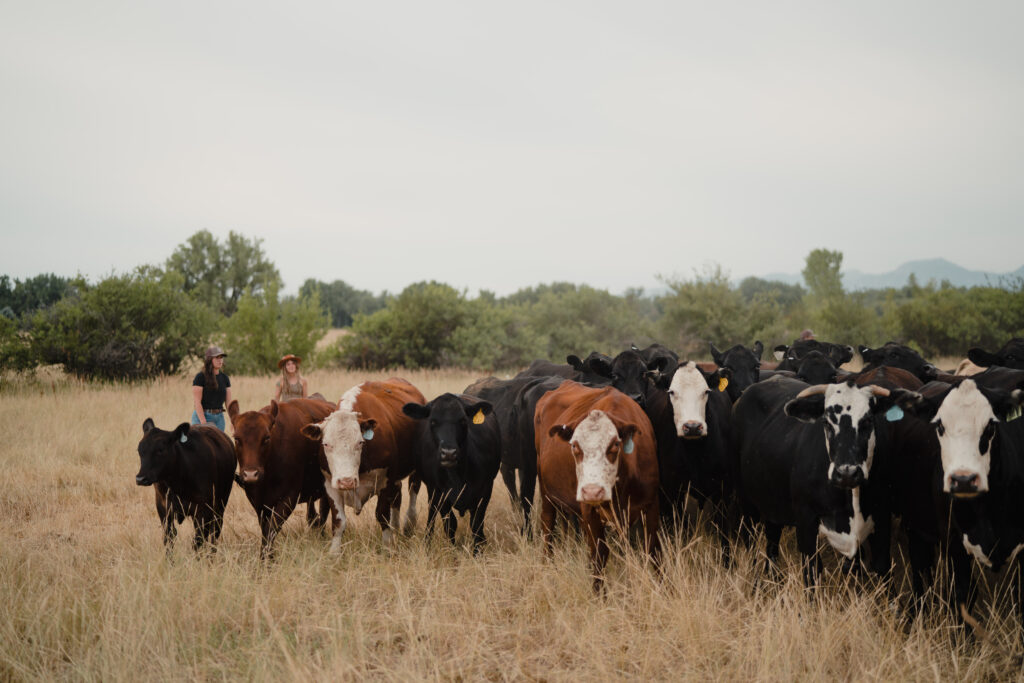
SOIL Boulder is a nonprofit organization dedicated to providing 0% interest loans to local food producers. Suzanne Prendergast, vice president of the executive committee at SOIL Boulder, explained, “The loans are structured flexibly to meet the needs of each farmer, with repayment terms ranging from two to five years.”
Members pay a yearly fee of $250 or more, which contributes to a loan pool, and receive voting rights to determine which projects receive funding. Recently, Grama Grass and Livestock received unanimous approval by members for a $50,000 loan to support expansion of their Boulder County-based regenerative meat company.
Nude Foods is a zero-waste grocery store that opened in Boulder in 2020 and has since expanded to Denver. To fund their continued growth, they are raising money through Wefunder, a crowdfunding investment platform that allows supporters to become investors.
“We wanted to raise more and make it accessible to our community so they can be part of what we’re building,” said Verity Noble, co-founder of Nude Foods. The current raise aims to address inefficiencies and promote the business more effectively as they plan to open three additional stores.
How to get involved
You can invest directly in Nude Foods through their Wefunder campaign. To get involved with SOIL Boulder, consider becoming a member by paying the yearly fee or attending their pitch events to learn more about the projects they support.
Sign up for the StalkMarket at Yellow Barn Farms or a local CSA like Grama Grass or Growing Gardens. The Boulder County Farmers Markets CSA Guide has a list of CSA options.
If you don’t want to commit to a weekly share — which requires payment upfront — use Boulder Weekly’s annual farm stand guide to source your local produce, honey, eggs and meat: bit.ly/BWFarmstandGuide.
Business cooperatives

Business cooperatives offer a more democratic and inclusive approach to business, where members — whether individuals or organizations — share ownership and decision-making responsibilities.
These organizations come in various forms, including consumer co-ops, producer co-ops, worker co-ops and purchasing co-ops.
Who’s doing it locally?
There are several examples of cooperative approaches to business in Boulder County. Two well-known examples are McGuckin Hardware and Namaste Solar.
A beloved fixture in Boulder, McGuckin Hardware is a member of the Ace Hardware purchasing cooperative. Ace Hardware is the world’s largest retailer-owned hardware cooperative, which means that independent owners operate most locations while also holding shares in the organization.
This cooperative model allows McGuckin to maintain local ownership while benefiting from bulk purchasing and shared services, so they can compete with big-box stores like Home Depot and Lowe’s.
Namaste Solar is a prime example of a democratic business. Worker-owners at Namaste follow a one-share, one-vote principle, giving each member equal say, regardless of their shareholding. As Jason Sharpe, CEO of Namaste, put it to Boulder Weekly, “You don’t have one or two people making huge profits. You have a lot of people building something that’s more sustainable.”
How to get involved
Supporting cooperative businesses is a powerful way to strengthen the local economy. Shop at McGuckin Hardware or seek employment with a worker cooperative like Namaste Solar, or others like it. If you’re in a position to implement a worker co-op at your own company or join a purchasing cooperative, take the leap — it’s a step toward a more democratic and resilient economy.
A powerful way to rethink our economic activities is to find ways to embrace reuse and resource sharing. In Boulder, Buy Nothing Facebook groups create a space where neighbors can give away items they no longer need and find secondhand treasures for free. Beyond simply exchanging goods, these groups foster a sense of connection and generosity that strengthens local ties.
Similarly, tools like Time Banking and Offers and Needs Markets allow community members to trade skills and services rather than money, creating a circular economy where people support one another while minimizing waste.
Change your personal approach to the economy for a stronger one to exist
Reimagining our economy to be more cooperative and democratic is a necessary response to the challenges of our time. Around the world and right in our community, people are working to build frameworks that shift power, capital and decision-making to everyday people.
One framework is the Just Economy, which supports financial activists who are shifting the flow of capital to address social and environmental challenges. Similarly, the Solidarity Economy emphasizes cooperation, democracy, social and racial justice, environmental sustainability and mutualism — centering interdependence and respect as fundamental values.
Another transformative model is Doughnut Economics, proposed by economist Kate Raworth, which balances meeting human needs with respecting planetary boundaries. It envisions an economy that provides for all without exceeding ecological limits, charting a course toward a sustainable and just future.
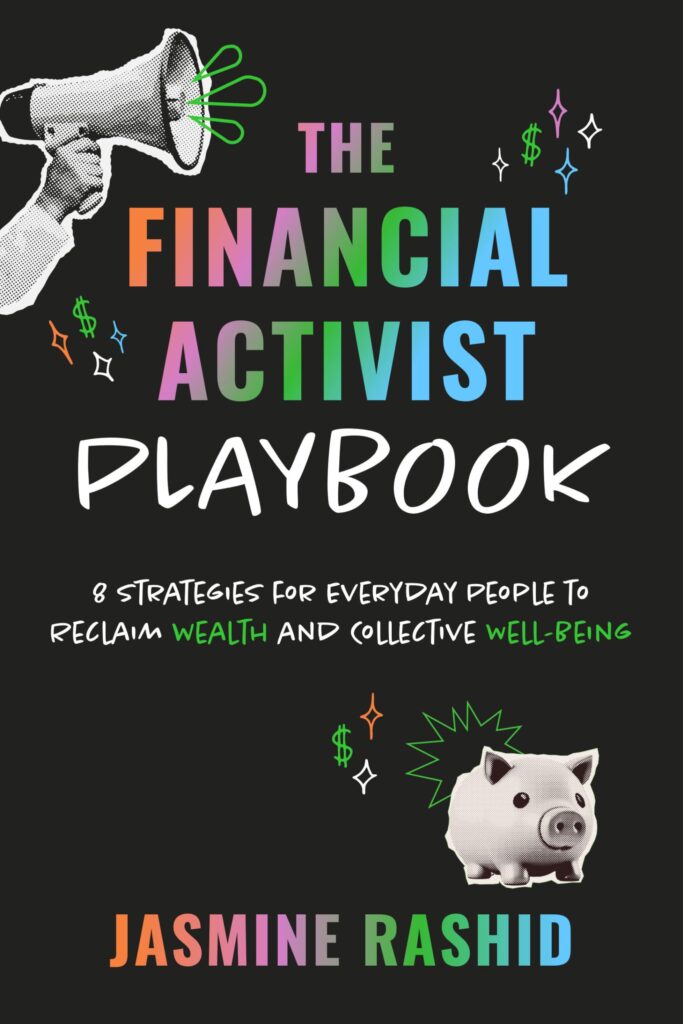
If you’re looking for tangible ways to change how you participate in the economy, check out The Financial Activist Playbook by Jasmine Rashid. It offers practical strategies to creatively engage with your community and rethink how you use your resources.
Right here in Boulder, we have leaders like Nathan Schneider at CU Boulder, who is pioneering new models for democratic ownership and governance through his work at the Media Economies Design Lab. His research explores how technology, democracy and religion intersect, as well as how we can rethink ownership and governance of online platforms and digital spaces.
We have the tools and resources to build a better future. Let’s organize our communities, our money and our lives around principles that prioritize equity, democracy and sustainability.
Andrea Steffes-Tuttle is a cultural anthropologist, writer and the founder and lead researcher at the Worker Equity Lab, where she studies shared ownership and its economic impact.

